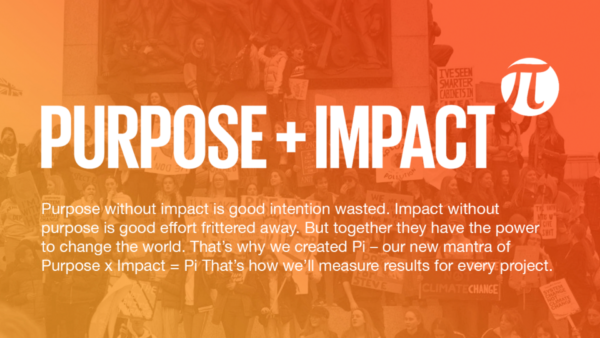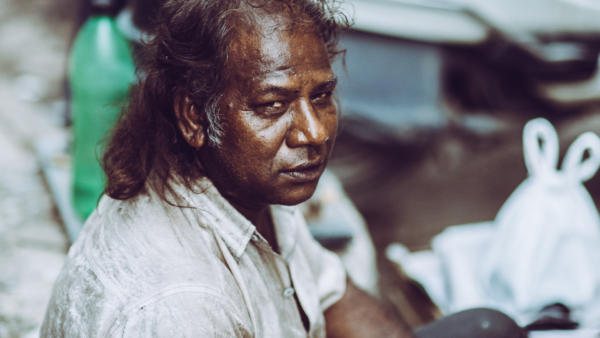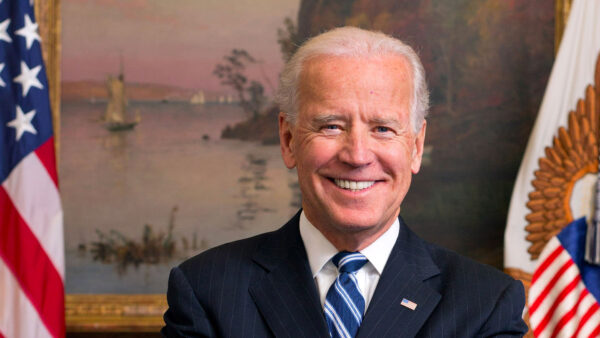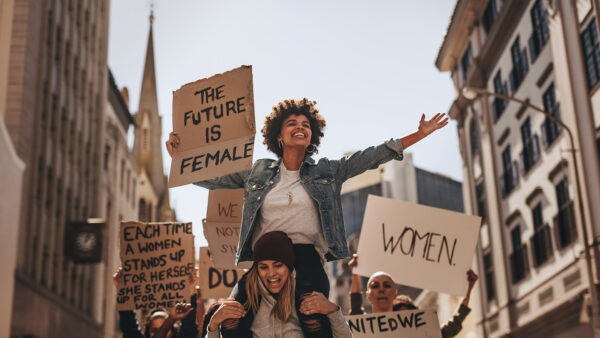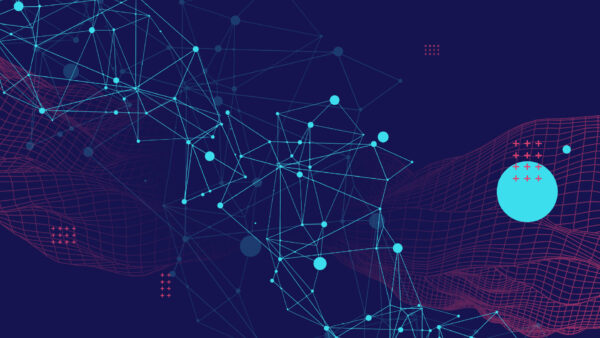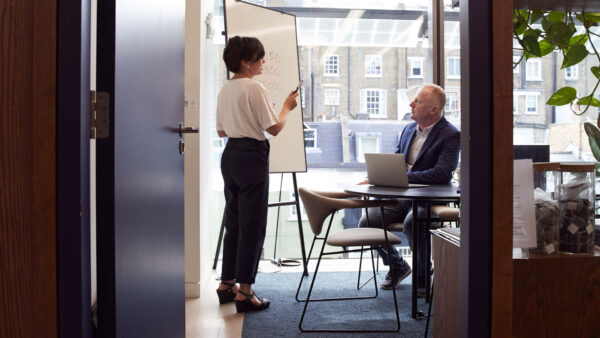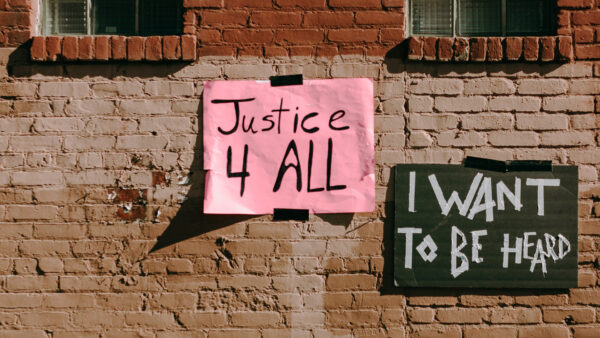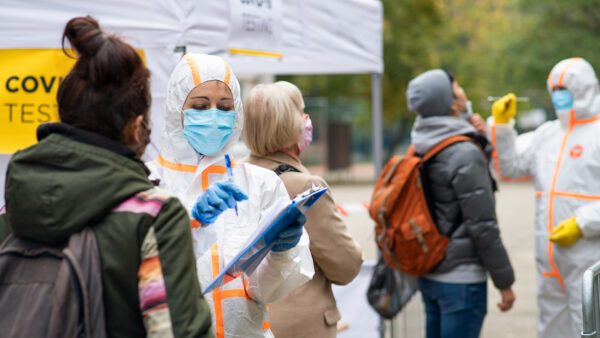OPINION: Here’s why the world cannot be saved without women
Women make up half of the world’s population. That’s half of the population comprised of bright minds, resilient warriors, and driven changemakers. As we embark on a new year, with new challenges and old, I want it to be known that for as long as we continue to hold these changemakers back, the world will continue to strive to tackle the issues facing modern society in vain. With the COVID-19 pandemic still rife in society, the call for absolute gender equality is greater than ever before. Whether it be addressing the disproportionate impact of the virus on the careers of women, as per several major reports, or a rise in domestic violence; we are now at the intersection of equality progress. Even the limited gains made in the past decades are at risk of being rolled back if we do not implement concise action, fuelled by multi-sector awareness. Now we must decide, do we go up or do we go down? Either way; the world cannot be saved without women.
In 2015, the world stopped in its tracks to align on a crucial blueprint for peace, prosperity, people, and planet. The United Nations General Assembly of 2015 would play host to one of the most important commitment agreements by 193 UN member states that the modern world has seen; in the form of 17 ‘Sustainable Development Goals’. These goals are inclusive of everything we need to do to prosper as a generation with key global targets to hit by 2030, including climate, equality, peace, economy, and more. This day would not only be monumental towards the world’s agenda for the next 15 years surrounding poverty, climate, and inequalities, it would also be integral to the reshaping of my career path. Along the way, if I have learned one thing, it would be that the world simply cannot be saved without women.
Of the 17 SDGs, Goal 5 marks the fight for gender equality outlined by the mission to empower all women and girls. But in true gender equality has a much larger bearing on the success of the goals, seeing as it has been linked to at least 13 of the 17 mission statements. So what makes an ‘empowered woman’, why can the world not be saved without them and how do we give them the platform to make a difference?
An empowered woman is a woman who can pursue her career, education, and public life free from prejudice, discrimination, violence, objectification and glass ceilings. It is a woman who is free to express herself to go on to be the one to save the world. But most importantly it is a woman who knows what it means to be ‘empowered’, for I have always said that you cannot fight for your rights if you don’t know what those rights are. Knowledge is power and in the fight for equality, women have just as much accountability in educating themselves on what equal opportunities truly means.
Where does inequality exist and where do our problems lie?
Business
As an SDGs campaigner who has led cross-continental campaigns, I have been privy to the power that the business world has in accelerating SDGs progress. But I have also seen that it harbours some of the largest gender inequalities, which given the fact women in business have so much to offer, is alarming. Globally, just 29% of senior management roles are occupied by women, and in the UK 37.2% of businesses have female managers. Year on year we read reports of the lack of women in senior positions at major firms and perhaps even more insultingly we hear of firms celebrating reaching a minute percentage tick-box for their representation of women. A recent report highlighted that the gender employment gap actually costs the EU €360 billion euros a year – so our first point of call is to shift from the notion that we are ‘doing women a favour’ by hitting a percentage of women in the boardroom and instead understand that by failing to have an equal representation of males and females in business – the world is losing out on inexplicable amounts of money.
At Home
This is nothing new. Domestic inequality has been a constituent of society for centuries, right down to the fact that a recent study conducted by UCL found that less than 7% of couples in the UK share housework work equally. These so-called divisions of domestic roles are more damaging than you might think. It sets a dangerous precedent for families and allows women to fall into self-fulfilling prophecies to ultimately deter them from making meaningful impacts – becoming accepting of lower earnings and less time to engage in non-domestic action.
Sexual Abuse & Harassment
Surveys have found that more than half of British women had suffered sexual harassment while at a place of work or study, ranging from inappropriate comments to sexual assault. Beyond the simple fact this is a truly terrible ordeal that no woman should face, how can we expect women to rise through their careers to contribute to positive impact if they are being deterred by issues such as sexual harassment? It really is a ‘shoot yourself in the foot’ moment by our generation.
So what are some of the ways we can achieve equality?
Change starts behind closed doors – and it involves educating children!
Gender inequality is not always a construct created by men. As women, change needs to start at home. We need to educate our children, both boys and girls, with the right grounding – the type that will leave them feeling inspired and empowered to one day be the one who solves the world’s issues. Children are incredibly influenced during their formative years, so it’s important that we teach them the concept of empowerment.
Let’s start by changing the norms within our individual eco-systems, i.e. the things that impact our lives on a local level. This includes everything from our education of children, the division of roles at home, personal values and attitudes. There needs to be a fair balance of responsibility. Teach each other that it’s not about special rights, but equal rights. Women are not looking to be given special treatment, far from it in fact. As women, if we ourselves think in a way that empowers us towards equality – the reality will be far easier to reach. There is no change without change.
Engage males
If we are to achieve gender equality, the involvement and engagement with men will be pivotal. We need to ensure that men are just as educated and on board with the theory of equality as women are.
Equal pay & Equal representation
Much has been said about equal pay in recent years, but still, we have a lot of work to do. Women work for free for two months a year as a result of the gender pay gap, according to an analysis by The Trade Union Federation. This sends out a terrible message to women aspiring to rise up the career ladder. Until we can convince women that they will be equally considered for job roles and equally paid – we will suffer the consequences of glass ceilings.
Look around you – the world is facing some incredible challenges at the moment, the likes of which we have not seen in decades. Can we really afford to shut out half of the population and carry them as passive recipients to the impact-driven by men? It’s now time to work as one, putting differences, ego’s and stereotypes aside in order to fight towards the same goals.
Addressing the COVID-19 impact
The pandemic has caused mass distress in the forms of human loss, economic downturn, mental wellbeing, sustainability progress, and more. But one of the more unreported victims of this pandemic has been gender equality; an area of society that has taken decades of work and campaigning in order to shift the dial, but now faces the prospect of unraveling before our eyes. Nearly 60% of women around the world work in the informal economy, earning less, saving less, and at greater risk of poverty.
As the global economy suffers, millions of women’s jobs have disappeared. In America for example, women accounted for 100% of the 140,000 jobs lost in December, whilst it was reported that men gained 16,000 according to a report by the National Women’s Law Center (NWLC). Recent reports have also found that 76 percent of women interviewed felt that the pandemic had had a negative impact on their mental health, whilst a leading domestic abuse charity reported a 700% increase in calls to its helpline in a single day during the first lockdown in 2020.
We need to place girls and women in the centre of our COVID-19 response or risk setting progress back at least 60 years.
2021 is a year like no other. It’s the year we make a stand a realise that if we don’t achieve equality, this generation will simply fail to achieve any meaningful change. It’s the year that we look to bounce back from the pandemic in the best way we can and continue our countdown to 2030 to achieve our UN targets… let’s make it 9 years of equality.

